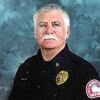One of the greatest experiences when entering the fire service is the immediate realization that you are part of a team.
Forged in fire and bound in training, the men and women who go through the academy with you remain lifetime brothers and sisters, no matter where they are, what they are doing or when you might see them again – a band of boots. And as you progress through your career, academy members refine their unique strengths while you remember the dynamics of team.
So while the old adage says, “There’s no ‘I’ in team,” I contend that it’s the development of individual talent that ultimately serves the greater good.
From individuals to team members
In the beginning, you sputter as rookie firefighters, challenged to learn you develop a clear understanding of who is good at what. Through performance and penalty, you realize who knows how to study and who is skilled at tying knots or at demonstrating the proper technique for the one-person ladder raise.
Eventually, you learn to work together to slay training dragons and to cooperate for squad awards. This give-and-take keeps you out of trouble and minimizes group chastisement.
Finally, after weeks of study and training, you ultimately realize that the sum of the experience is truly greater than any one individual contribution. And it’s around this time that you have completed fire academy and are ready for a station assignment and crew.
The next step
While you may feel like an outsider on your first day, after weeks (or sometimes months), you soon find your place at the table and your role in crew assignments. Your life as a firefighter has begun and your commitment to teamwork and group dynamics is reinforced and ingrained with time and work. There is pride in your step.
From now on, this sense of team performance will be tested at every turn, practiced in every training scenario, and reflected in every decision made on scene.
Standing out
Eventually, the comfort of your anonymity within the department gives way to recognition of your increasing abilities in particular areas. Certain tasks are assigned to you repeatedly, and a nickname is bestowed. Good humor gives way to a silent respect as you begin to individualize yourself within the team and your department.
Precipitated by interest and ability, nurtured in mentorship and small rewards, this personalization marks the development of inadvertent but well-defined roles, including yours.
You are now at a critical junction in your fire service career. Your skills are not only being used, they are also being acknowledged by members of the department. Call after call of seemingly anonymous performance and little recognition has finally resulted in a nod of the helmet to you.
As good as this feels, always remember that humility and self-deprecation are effective tools in dealing with this informal type of individual leadership recognition. Further, it’s essential to appreciate the bigger impact.
What you may not realize above all the informal accolades is that the overall effect of identifying your talents promotes a safer and more productive working shift. Failure to fully appreciate this important principle can delay your career development or, worse, ostracize you from the group. You must find a way to be comfortable with your improving status. Humble acceptance and a willingness to share will go a long way in securing your place in the fire service universe.
A collective effort
The key career strategy now is focus, dedication, patience and joy. Lieutenants and captains often say their greatest time in service was their years as a firefighter. Most senior officers will affirm the belief that the fire service puts you where you are needed most and that a job so critical to life safety requires sensible placement of personnel, short and long term.
For you as a firefighter, this means training, testing, competing and ultimately earning rank. You do so by participating in an atmosphere of inclusion, rather than exclusion by rank or position, and by performing everything from heroic acts to mundane chores.
The result is a firefighter’s advancement and ultimate promotion that feels like a logical extension of group determination rather than individual recognition. It is this collective effort, greater than any individual moment, which defines teamwork and the fire service’s reverence. This is the first lesson and the ultimate reward of your time in fire academy – it’s what puts the “I” in team.













